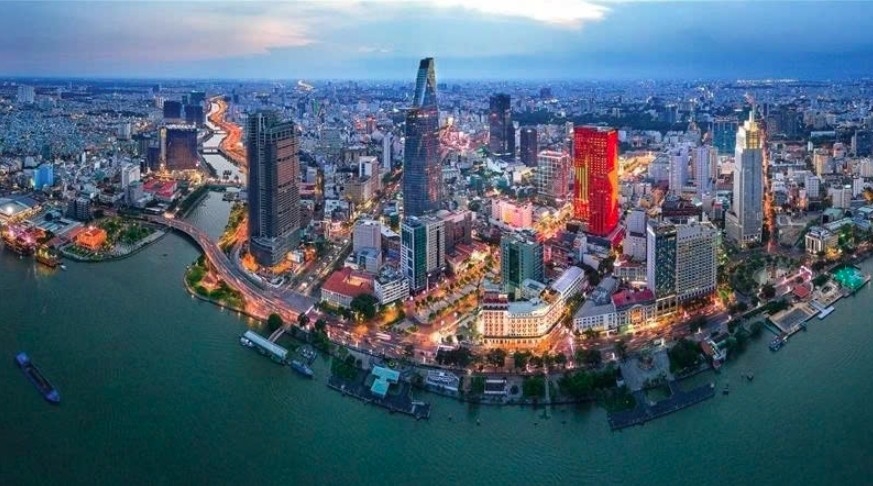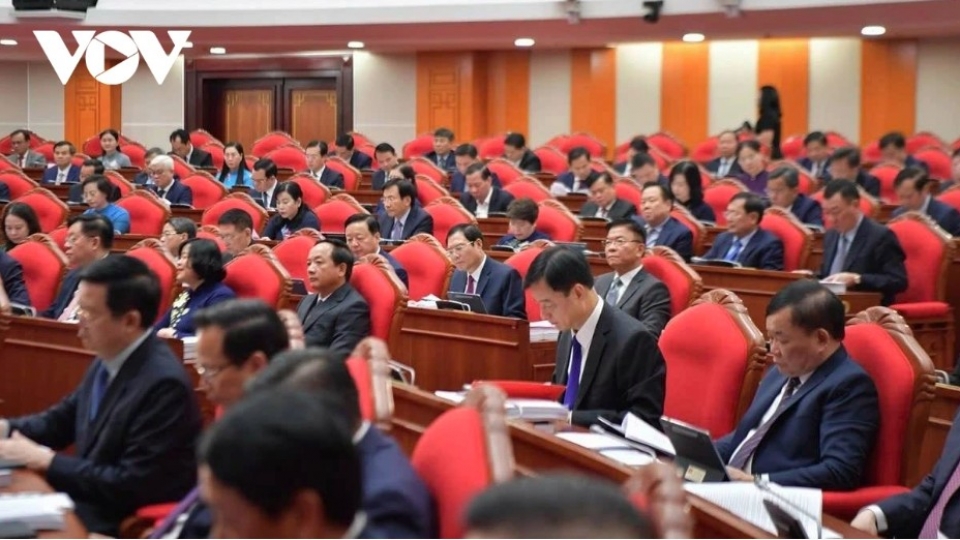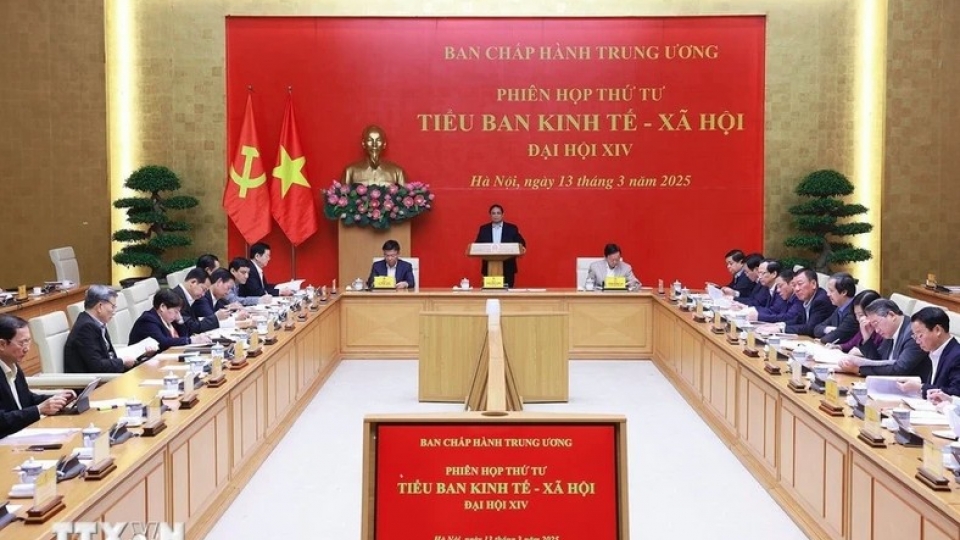Vietnam poised for strategic breakthroughs after 14th Party Congress
VOV.VN - Vietnam is entering a new era of development, building on nearly 40 years of Doi Moi (Renewal), with renewed strengths and momentum expected to spur rapid and sustainable growth.

In the months leading up to the 14th National Congress of the Communist Party of Vietnam, the nation is preparing for strategic breakthroughs in governance, institutional reform, and resource mobilization.
Looking back over almost four decades of Doi Moi, Vietnam has transformed from a food-deficient country into one of the world’s leading rice exporters.
Economic growth has averaged 6.6% per year from 1986 to 2023. By 2025, the national economy is projected to exceed US$500 billion, ranking 30th globally, with per capita income expected to surpass US$5,000.
In the international arena, Vietnam has increasingly asserted its position through membership and active participation in multilateral economic and political organizations, such as the World Trade Organization (WTO), the Asia-Pacific Economic Cooperation (APEC), and the Association of Southeast Asian Nations (ASEAN), alongside new-generation free trade agreements, including the Comprehensive and Progressive Agreement for Trans-Pacific Partnership (CPTPP), and the EU-Vietnam Free Trade Agreement( EVFTA).
These steps have helped expand export markets, enhance corporate competitiveness, and strengthen international integration and cooperation across a variety of fields.
To meet new development requirements, the Politburo has issued four key resolutions - Nos. 57, 59, 66, and 68- regarded as a “strategic diamond quartet,” designed to maximize potential and drive comprehensive national breakthroughs.
Dr. Nguyen Si Dung, former Deputy Chief of the National Assembly Office, analyzed that these resolutions form an institutional framework for sustainable development. They not only provide guidance for individual sectors but also constitute a “quadripartite pillar” of institutional governance for the new era.
Resolution 66, on lawmaking and enforcement, establishes transparent and consistent rules. Resolution 57 on science, technology, and innovation provides productivity and core technological drivers. Resolution 68 affirms the private sector’s role as a key force in the economy. Resolution 59 expands Vietnam’s international playing field, setting high standards that push continuous improvements to remain competitive.
“When implemented in a coordinated manner, these resolutions reinforce each other: transparent legislation supports breakthroughs in technology and private enterprise; enterprises absorb and commercialize technology; integration opens markets while boosting domestic reform. This institutional framework lays a solid foundation for Vietnam to fully leverage its internal strengths, deepen integration, and advance rapidly toward sustainable development,” Dr. Dung explained.
Another notable point is the innovation in preparing the documents for submission to the 14th Party Congress. For the first time, the three key reports, including the Political Report, the Socio-Economic Report, and the Party-Building Summary Report, were integrated into a single, coherent, and comprehensive document. This integration ensures consistency and alignment in strategic directions, thereby enhancing both persuasiveness and practical implementation ability.
Party General Secretary To Lam emphasized that resolutions at all levels must be actionable immediately after the congress. The fact shows that in Hanoi, many local party committees have prepared concise, easy-to-understand reports that are straightforward to carry out and monitor, thereby demonstrating a spirit of innovation tailored to local conditions.
According to Dr. Nguyen Si Dung, the integration for the first time of the Political Report, the Socio-Economic Report, and the Report on Party Building into a single unified document marks a highly significant innovation. Instead of being separate, the three reports are now closely interlinked, reflecting a modern governance mindset: politics, socio-economics, and Party building are not isolated, but illuminate and complement one another.
This approach first and foremost enables the Party to strengthen its leadership capacity, as political guidelines are immediately translated into socio-economic development goals, and their implementation is ensured through organizational and Party-building capacity. More broadly, the unified document becomes an effective governance tool as it sets development directions, allocates resources, and establishes a continuous mechanism for supervision and evaluation.
The document is presented concisely and specifically, with clearly defined objectives, practical solutions, clearly designated responsible parties, and transparent expected outcomes. Notably, for the first time, the action plan has been developed concurrently with the document itself, avoiding delays in implementation after the Congress. This represents a significant step forward to ensure that strategic decisions are organized and realized swiftly and effectively.
For instance, in transportation infrastructure, the document specifies expanding urban railway networks in Hanoi and Ho Chi Minh City and proposes solutions to traffic congestion and environmental pollution. Decentralization and delegation are emphasized to enhance accountability, accelerate implementation, and improve effectiveness.
The Party Congresses at all levels are taking place under exceptional circumstances, simultaneously addressing multiple major tasks: streamlining the apparatus, reorganizing administrative units, developing the economy, and conducting the Congress itself. This unprecedented pressure requires Party committees to innovate their thinking and focus their intelligence on crafting political reports that are realistic, specific, and closely linked to available resources and accountable entities.
“When politics, socio-economic development, and Party building are integrated within a single document, public trust is also reinforced. Citizens can clearly see a coherent vision, a synchronized strategy, and, most importantly, a determination to act across the entire political system,” Dr. Dung concluded.




